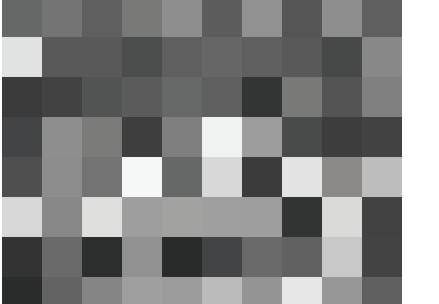
6 minute read
Recent emphasis on censor***p
Forms of media become restricted for various reasons
Malak Samara samarmal000@hsestudents.org
Advertisement
Libraries, the media and the news are some of the many resources people all over the world utilize in order to become more knowledgeable on a topic or learn new, exotic ideas that they otherwise would not have come across. However, with the recent phenomenon of censorship, book bans and misinformation, there is a fear that those sources will be restricted to the point where rights and entire identities are stripped away.
“It’s dangerous to censor books because you’re not presenting [all- sides and you’re not being equitable then,” administrative assistant of library and technology Rachelle Anaba said. “Usually the books that are censored have to do with a marginalized society or a religious [group], so I think we have to have a broad range of everything in the library.”
Generally, censorship is the act of prohibiting either entire pieces of media or parts of it that are considered ‘obscene,’ ‘a threat to security,’ or ‘politically unacceptable.’ Senior Mira Athmarao believes that censorship is also a way for those in positions of power to force their ideals or morals onto the public. Public Engagement editor at IndyStar Oyese Boyd agrees that it is taking away the opportunity for people to form their own opinions.
“[Censorship] is actually hindering what my job is as a journalist,” Boyd said. “My job is to be a government watchdog. My job is to report what’s going on to citizens so that they know what their government is doing.
Censorship has no place in journalism.”




Even though censorship is now known to be limiting freedoms, it was originally intended to protect people from media such as child pornography, misinformation or to stop mature content from getting into the hands of children. Anaba believes that she, as a parent, has the right to be in charge of what her kids do and do not see. Athmarao agrees with this thought and further believes that censorship can help people of older age, as well.
“I am for [censorship] to a certain extent,” Athmarao said. “Censorship for kids [is important] so they don’t have unrestricted internet access as that could be dangerous for the child’s safety and physical and mental well-being. Misinformation [also] needs to be monitored so people don’t make outlandish claims on basic concrete beliefs like science.”
What censorship has become now, however, is what most have a problem with. Anaba believes it is more damaging to try and tell people what they can and cannot read because eventually, they will nd an outlet to read about what they are interested in. erefore, instead of children having an important and necessary conversation with a trusted adult about a topic they read that might be unfamiliar, they are doing it on their own, potentially making dangerous decisions. Further, Boyd emphasized that censorship of certain news stories or journalism makes the government authoritarian, which is the exact opposite of what America was founded on.
“State suppression of news they don’t want getting out or just books and movies the government might think should be censored are some issues I don’t support,” Athmarao said. “[When] the majority decides what everyone sees, the narrative is decided for us instead [of] us critically thinking and evaluating, and repression creates compliance.” e idea of no censorship in journalism/the news, speci cally, is valued because it helps the general public form political opinions in order to gure out who they feel is best to run the country. Further, it allows people to nd out about important causes, events or issues that they could play a part in helping or combating.
“[With censorship] we live in a perfect bubble where we are ignorant of others’ issues that we could be helping solve,” Athmarao said. “We need to be aware of global issues and national issues. For example, Iran’s struggle for women’s freedoms was being suppressed by the Iranian government until the death of Mahsa Amini became known across the world. Now Iranian women have the support and resources of millions of others worldwide, which can help them overcome their oppressive government.”
News reports and books are not the only things being censored. ‘Indecent,’ a play about the censorship of the 1923 Broadway production of an LGBTQ+ story, ‘God of Vengeance,’ was canceled in a Florida country school in January. e o cial reason for the cancellation of the show was due to a scene that was considered too mature for a school setting.
“[Banning the play] just shows the ridiculousness of it all and how we’re not even grasping nuances now,” Boyd said. “It was satire. Satire to show you the ridiculousness of censorship, and it [showed] the ridiculousness because it ended up being censored.” e banning of ‘Indecent’ is not the only recent act of censorship. In Florida, an AP African American studies class was considered to be banned from the curriculum due to the mention of
Pen America, a group that advocates for free speech rights, is drawing national attention to the decision with the condemnation of censoring LGBTQ+ stories.
“[Banning the play was] just a matter of homophobia and wanting their kids to be straight rather than even introducing them to the concept of the LGBTQIA+ community safely,” Athmarao said. “I think the general LGBTQIA+ community is [usually] censored, as their issues are hardly ever seen in the spotlight outside of social media platforms.
A concern that arises from the banning of ‘Indecent’ and ‘God of Vengeance’ is the message it sends to mostly younger audiences. Since the banning of both is speculated to be due to the fact that their themes are LGBTQ+ based, rather than mature, it correlates the community with being a bad thing.


“It sends the message that being queer is bad and unnatural, which makes it feel unsafe for those kids to truly feel like themselves if they don’t see representation and believe that there are others like them,” Athmarao said.
Critical Race eory. Further, a library in Illinois is in jeopardy of being closed down due to possessing a book about the LGBTQ+ community. Boyd believes this is a perfect example of censorship going too far because not only is it taking away important resources from society, but it is also stripping the right to read away from those who only had access to that library.
”I felt [the banning of the African American studies class] was a dangerous way to keep their whitewashed version of history,” Athmarao said. “It’s preventing their students from getting a fair world view of what really happened to Africans who were brought to the U.S. against their will, which will only reinforce racial bias and allow white supremacy to fester.”
Censorship is not something that has only started recently, however, and instead has been a prevalent theme for a long time. ‘God of Vengeance’ was banned in 1923 and there have also been talks about book bans nationwide for a while, such as the banning of a holocaust graphic novel. Anaba believes that censorship is being brought up more frequently due to the use of social media and technology to spread the word, but that the act of censorship is just as regular as it has been in the past.
Even though censorship is a recurring topic concerning many, especially those involved in journalism, Boyd believes nothing should change about censorship other than the fact that nonexperts or the government are trying to mandate it. Boyd believes that libraries already do a good job of sectioning o di erent books for di erent age groups, but if all else fails parents can have a nal say in what their child reads or sees.
“I don’t think I would change anything because librarians go through and look at books,” Boyd said. “You have books divided up by age appropriately. Parents are the ones who are supposed to have the nal say. So if that book is not okay for your family, for your kid, then you are supposed to be the one with the nal say so.” ose against censorship seem to have the biggest problem with double standards as well as the pathway toward governmentmandated thoughts or ideologies. What makes America unique from other countries is its democracy and the multitude of rights citizens are promised. If the government starts mandating what people can and cannot read or believe in, it strips away that entire foundation from the country.
“[Censorship is allowing] the government to tell people what to believe and how to think,” Boyd said. “[Citizens] are not getting information to make their own informed decisions. at’s what you need in a free society and a democratic society, you need to be able to make your own decisions. Part of what makes America great is we’re allowed to question these things. We have this love-hate relationship with authority where we have authority gures in place but we’re also supposed to question and hold them accountable. at’s what makes this country, this country.”









